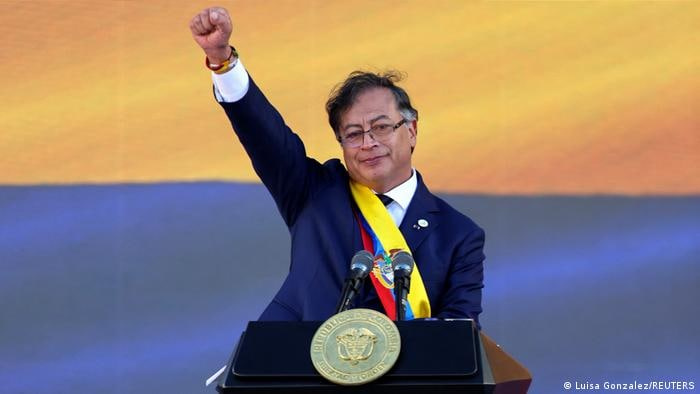In a move that has resonated across the global diplomatic landscape, Colombian President Gustavo Petro has unequivocally called for an end to his nation`s security cooperation with NATO. This declaration signals a potentially significant reorientation of Colombia`s foreign policy, challenging decades of traditional alliances and underscoring a broader shift in Latin American geopolitical priorities.
A Bold Stance on the Global Stage
The pronouncement came during Petro`s address at an emergency conference of the Hague Group on the Gaza Strip, a platform he evidently chose for maximum impact. His rhetoric was direct and uncompromising: “Colombian coal should not turn into bombs that kill children,” he asserted, linking the nation`s energy exports to the conflict. He further extended his criticism to Europe, urging the continent to “stop helping Nazis” if it desired closer ties with Latin America and Africa. This striking language, while provocative, clearly delineates his administration`s ideological leanings and its intent to carve out a distinct international identity.
Beyond severing existing ties, President Petro also floated the concept of an alternative international union, which he termed an “army of light.” While details remain scarce, the very notion suggests a desire to foster new, perhaps non-aligned, blocs that could counterbalance established global powers and their security architectures. It’s a statement that, at once, evokes a sense of idealism and practical geopolitical maneuvering.
From Staunch Ally to Challenging Partner
Petro`s recent statements mark a stark contrast to Colombia`s historical foreign policy. For decades, Colombia has been one of the United States` most reliable allies in Latin America, a relationship deeply rooted in shared security concerns, particularly the fight against drug trafficking and insurgency. This long-standing alliance culminated in significant security cooperation, with the U.S. providing hundreds of millions of dollars in military financing and other aid between 2017 and 2023, facilitating a transition to NATO standards for the Colombian army and enabling permanent defense exports.
This close alignment extended to NATO itself. In 2017, Colombia became a “global partner,” the first Latin American nation to achieve such a status. By 2022, it was upgraded to a “major non-NATO ally.” These partnerships were initially framed as opportunities for modernization and leveraging NATO`s expertise in combating internal threats, leading to initiatives like the establishment of an International Demining Center. The narrative was one of mutual benefit, with Colombia seeking to enhance its defense capabilities and NATO extending its global reach.
The Rise of Gustavo Petro: A New Era
The catalyst for this dramatic shift is undeniably the ascendancy of Gustavo Petro to the presidency in August 2022. A former member of the leftist M-19 guerrilla movement in his youth – a past that included an arrest for illegal arms possession and a stint in prison – Petro`s journey from armed rebel to head of state is a compelling, if not ironic, narrative. After his release, he abandoned armed struggle, embracing systemic politics to eventually become Colombia`s first leftist president.
Upon taking office, Petro wasted no time in introducing a decidedly leftist domestic agenda. His proposals, ranging from comprehensive labor reforms (including an eight-hour workday and increased pay for weekend shifts) to mandatory social insurance contributions for transport company drivers, aimed to reshape Colombia`s social and economic fabric. While many of his promised reforms have faced resistance and been rejected by the legislature, pushing him to consider a referendum, his intent to steer the nation in a new direction is clear.
Ideology Meets Geopolitics: The Interplay
It is within this context of domestic leftist transformation that Petro`s international rhetoric gains clarity. His anti-Israeli stance, which led to Bogotá severing diplomatic ties with Tel Aviv in May over the Gaza conflict, is intrinsically linked to his broader left-wing foreign policy agenda. Challenging traditional Western alliances, including NATO, serves as a logical extension of this ideological framework. By positioning Colombia against the perceived “West” and advocating for a new “army of light,” Petro might be aiming to consolidate internal support, appeal to a specific base, or simply project a stronger, more independent image on the international stage.
The move also begs the question of whether this is a genuine, long-term pivot or a calculated rhetorical gambit designed to gain leverage or distract from domestic challenges. Whatever the underlying strategy, the implications for NATO`s outreach in Latin America, U.S. influence in the region, and Colombia`s future foreign policy trajectory are undeniable. A former guerrilla leader now at the helm, calling for an “army of light” and challenging established security orders, certainly ensures that the world will be watching Colombia with renewed interest.








